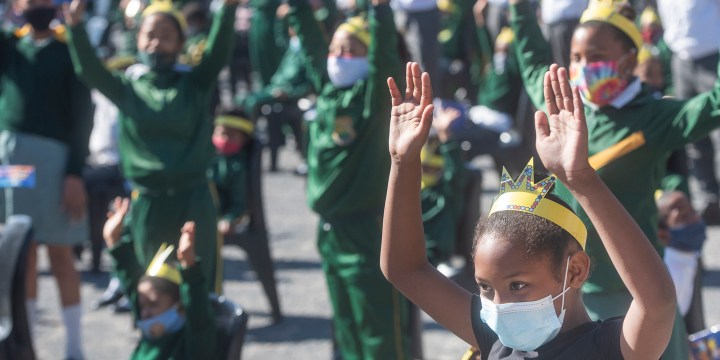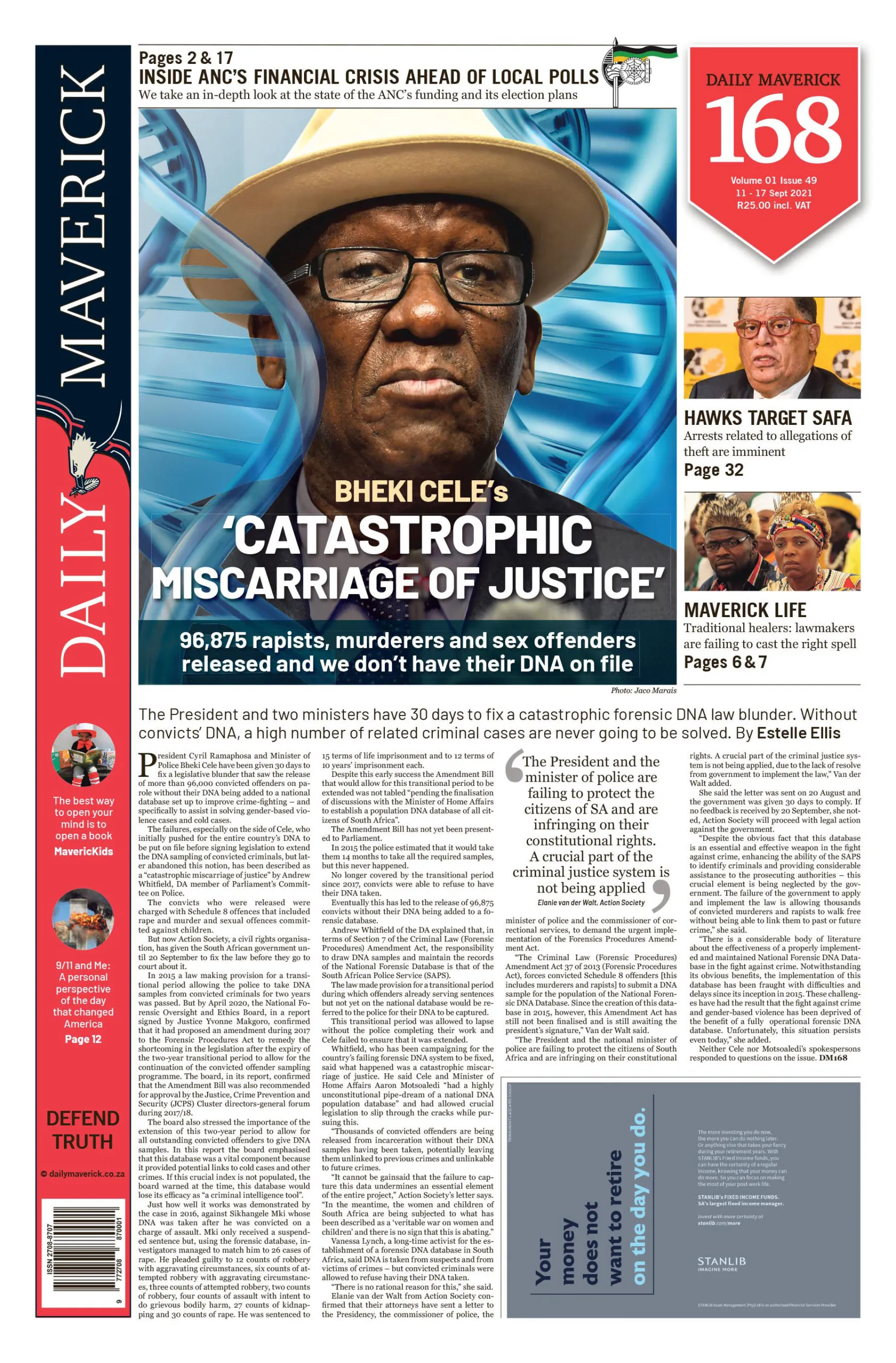MAVERICK CITIZEN 168
South Africa’s literacy rates plunge deeper as learning time is lost

Solving South Africa’s literacy crisis is not clear-cut, but experts agree that having ‘bums on seats’ is the first step.
First published in the Daily Maverick 168 weekly newspaper.
“That’s the only way we’re going to be able to turn around what looks like a deep dive off a cliff,” said Professor Sarah Howie, director of the Africa Centre for Scholarship at Stellenbosch University.
However, this is proving to be a challenge during Covid-19. Pandemic-related closures of Early Childhood Development (ECD) centres across South Africa – some temporary and some permanent because of financial struggles – would take its toll on learner literacy.
“By missing out on attendance at ECD centres, children have lost the early literacy momentum that they would have developed. This means a delay in their language and reading abilities,” said Eric Atmore, head of the Centre for Early Childhood Development.
Education and literacy experts say that school dropout rates could surge in years to come if urgent interventions are not put in place to recover lost learning time. Howie said, however, that South Africa was not alone, and literacy setbacks could happen globally because of the pandemic.
According to the 2016 Progress in International Reading Literacy Study (PIRLS), eight out of 10 Grade 4 learners cannot read for meaning across all languages in South Africa.
The study assesses reading comprehension and monitors trends in reading literacy at five-year intervals. In 2016, South Africa placed last out of the 50 countries participating in the study.
Howie, who was the national research coordinator of the study, said children who struggle to read by age 13 were most likely to drop out of school.
Adult literacy rates in South Africa are not much better. World Bank data show the country has an 87% adult literacy rate, ranking below countries such as Mexico (95%), Brazil (93%) and Azerbaijan (99.8%). The figure for South Africa represents a decline of around 7% in two years.
According to Howie, in the worst-case scenario, adult literacy rates could plummet to where they were around 40 years ago.
Improving literacy boiled down to teacher training, resource provision and accurate assessment, she said. This means teachers are empowered to accurately gauge a child’s reading level, give them the right reading materials and monitor their progress.
Teachers should also be able to equip parents with the skills to help their child with reading homework.
Speaking at a Unesco World Literacy Day event on 6 September, Basic Education Minister Angie Motshekga said that, of her department’s 11 priorities set to take the basic education sector “to the next level”, ensuring learners could read for meaning was the most important.
She said several initiatives had been launched, including the Read to Lead Campaign, the National Reading Coalition, the Integrated National Reading Sector Plan and Presidential Reading Circles.
Planned outcomes for the barrage of interventions included reaching a 500-point score for Grade 8 learners in the Trends in Mathematics and Science Study by 2030, and improving South Africa’s Southern and East African Consortium for Monitoring Education Quality results for Grade 6 Languages and Mathematics from 495 to 600 points by 2022. Atmore said literacy was “foundational for a child’s ability to learn” as they progressed through the education system and for “social and emotional functioning in society”.
The PIRLS study found that more than half of South Africa’s primary schools lacked books, libraries and infrastructure, limiting progress in reading literacy for Grade 4 learners.
“Library resources are underfunded and they are not always located close to small towns and villages,” said Howie.
The tax on books had also made them unaffordable. Atmore said a lack of books in impoverished homes left children with few opportunities to read outside the classroom.
High adult literacy rates also affected child literacy. Atmore said the onus on parents to assist with teaching and learning during the Covid-19 pandemic meant that children in homes where parents were illiterate were most at risk of setbacks.
During a webinar on 8 September hosted by Stellenbosch University’s School of Education, Professor Mbulungeni Madiba said parents’ ability to assist their children with learning during lockdown may also have been hampered by whether the parent was literate in English, the language most children are taught in.
PIRLS found that, despite the requirement that South Africans be taught in their home language until Grade 3, learners studying in English and Afrikaans had the highest reading achievement regardless of the language spoken at home.
Teacher training was another issue, Howie said, as it often did not happen in the teacher’s home language. “So they might be doing the teacher training in English but then they have to go and teach in Tsonga, for instance.”
There was also a dearth of qualified Foundation phase teachers in the largely informal ECD sector and the people teaching children to read were not always equipped to do so. DM168
This story first appeared in our weekly Daily Maverick 168 newspaper which is available for R25 at Pick n Pay, Exclusive Books and airport bookstores. For your nearest stockist, please click here.





















 Become an Insider
Become an Insider
Comments - Please login in order to comment.